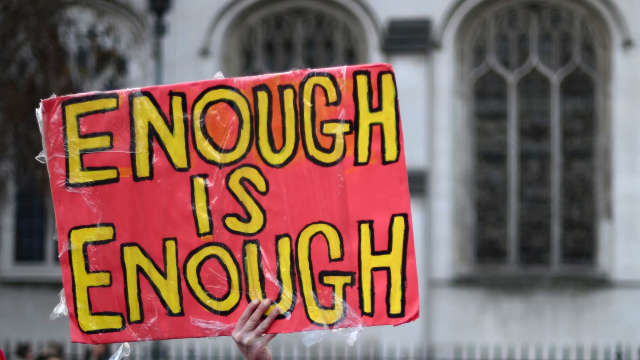Faced with inflation, strikes are multiplying in many sectors of the economy. It’s because of Brexit, but not only.
After the railway workers, teachers, customs officers and paramedics, the nurses are preparing to enter, this Wednesday, January 18, in the dance of protest. In the United Kingdom, the strike movement for better wages that began several months ago has now spread to almost all sectors of activity, threatening to paralyze the country.
It must be said that two years after the implementation of Brexit, the economic upturn promised far from the shackles of the European Union is not there. Inflation reaches 11% in one year, GDP fell by 0.3% in the third quarter of 2022 and according to the Bank of England, the United Kingdom has entered a period of recession which is expected to continue in 2023. C It is also the only G7 country to have yet to recover its pre-pandemic GDP.
“Obviously, Brexit has an impact in the current crisis, says Aurélien Antoine, director of the Brexit Observatory and professor of law at the University of Saint-Étienne. When you come out of 50 years of very strong, integrated relations, of a supranational organization like the EU, it is not easy. When the relationships were close and constant, how do you expect it to be simple? »
Cost And Waste of Time
For example, “Brexit has reduced British foreign trade by 10 to 15% compared to a scenario without Brexit”, Jonathan Portes, an economist at King’s College London, told AFP. “There are administrative formalities and additional checks, new rules, customs fees…, explains Aurélien Antoine. All this leads to additional costs and loss of time in all economic areas. »
Catherine Mathieu, economist at the French Observatory of Economic Conditions, refuses to point to Brexit as responsible for all the ills. “When we look at other European countries, the rise in prices in the United Kingdom is comparable to that observed in Germany, she qualifies. In Eastern Europe, inflation even reached 20%. This is not due to Brexit, but to rising energy prices. Only countries that have implemented tariff shields, such as France, are spared. »
However, the two specialists agree that Brexit is responsible for the labor shortage, immigration being made more difficult for Europeans. In 2021, this lack of transport workers – combined with the Covid-19 crisis – had, for example, caused supply problems in supermarkets and service stations.
The NHS on The Verge of a Nervous Breakdown
Today, it is the health sector that is suffering. If tensions already existed before Brexit, the situation has worsened. According to the study by the Nuffield Trust health think tank relayed by the Guardian, 37,000 doctors work in the country. They should have been 41,000 without Brexit, i.e. a lack of 4,000 specialists: anesthesiologists, psychiatrists, pediatricians…
“Is Brexit the source of all the problems in the United Kingdom at the moment, of course not”, nevertheless concedes Aurélien Antoine, author of Le Brexit. An English story. He refers to the Covid-19 pandemic and the war in Ukraine, which caused the rise in energy and food prices, although he acknowledges that it “is difficult to say what is the share of responsibility of the war, the Covid and the Brexit in the current crisis”.
Catherine Mathieu also underlines the impact of the policies of the conservatives in power since 2010: “They have put forward their objective of reducing the public deficit, which involves not raising taxes but lowering expenditure. The public health system has been suffering from government austerity for ten years. »
65% of Britons Want to Return to The EU
“Added to this is the pandemic, during which caregivers were in high demand and saw their working conditions deteriorate. Logically today, in the face of high inflation, they are demanding a higher wage increase than the 5% promised at the start of 2022”, continues the economist.
“It’s the same thing in transport: truck drivers are forced to accept more difficult working conditions without wage compensation,” she points out. This explains the hardening of the negotiations and the strong mobilization of these two sectors in the current historic strikes, according to her.
It is in this tense context that in early January, a poll published by the newspaper The Independent revealed that 2/3 (65%) of the British supported the idea of a new referendum to return to the EU. They were 55% a year earlier. “Under my authority, the United Kingdom will not seek any relationship with Europe which is based on alignment with EU laws”, Prime Minister Rishi Sunak had evacuated in November 2022.
The British must therefore wait for Brexit to show its positive effects. “The error of the pro-Brexit during the campaign was to say that it was going to be great right away”, underlines Aurélien Antoine. “It logically has negative effects and for the future it is very difficult to say. It took years for the UK to feel comfortable in the EU. It will take years for the UK to adjust to living outside.
This article is originally published on huffingtonpost.fr

